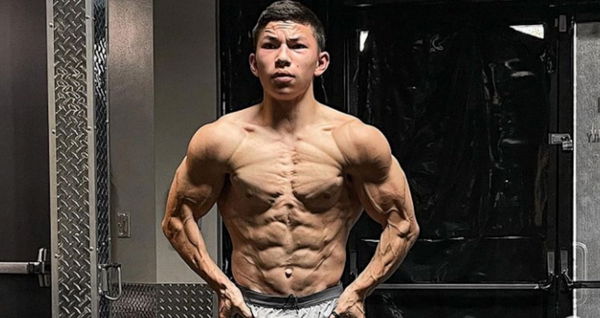

People regard bodybuilding and fitness training as activities that promote health. Physical training releases endorphins that improve mood after a training session. However, in today’s social media-led competitive landscape, even pursuits like bodybuilding may turn unhealthy. In fact, bodybuilding may have negative effects when taken too far.
Watch What’s Trending Now!
While the endorphins release may be a temporary boost, bodybuilding training also has many other benefits. Muscle building helps the body fight aging, improve metabolism, organ health, and much more. However, thanks to social media fitness, many average people have felt the pressures that only competitive bodybuilders have to deal with.
ADVERTISEMENT
How competitive bodybuilding may worsen mental health
While people who pursue bodybuilding for general fitness do not take things to the extreme, pro bodybuilders often do. Multiple-time Olympia winners like Phil Heath, Jay Cutler, Ronnie Coleman, and Chris Bumstead have spoken about the psychological toll of competing on stage. That’s because the prep phase often pushes pro bodybuilders to physical and mental extremes.
Phil Heath has spoken about how bodybuilding is a lonely sport. While preparing for his first contest, Heath was still part of his college basketball team. While the rest of the team wouldn’t have problems partying in between games, Heath had to remain disciplined. Despite being part of the team, he stopped attending late-night parties because he couldn’t break his discipline.
Top Stories
Unbelievably Jacked at 51, Guardians of the Galaxy Famed Actor Set Internet Ablaze With His Shirtless Snap

Alan Ritchson vs. Prime Arnold Schwarzenegger: Physique Comparison

Everything You Need to Know About Mr. Olympia’s Sole Owner Jake Wood, Who Also Brought Ms. Olympia Back

“Steroids Ruined Him”: After 20-Year-Old Left Scarred for Life, Bodybuilding Icon Warns Young People Not to Risk Their Health for Unachievable Transformations

Rapper Lil Wayne Reveals Secret Behind Ripped Physique Despite Maintaining Distance From the Gym: “Vegetables Are Included in Every Meal”

ADVERTISEMENT

ADVERTISEMENT
Heath confessed that the night before his show, he had to go sleep inside his car because the college basketball team members partied in the dorm. Many other bodybuilders also confessed to missing family events due to their preps. Cutler would only step out of his house to train and buy groceries during his most intense preps.
Chris Bumstead is arguably the most popular bodybuilder today, with over 25 million followers on social media. However, recently, the five-time Classic physique champion spoke about how bodybuilding has helped and harmed his mental health. While training helped Cbum push aside his struggle with depression, he later had to face it in life.
Thankfully, Bumstead got all the support he needed from his fiance, Courtney King, his family, friends, and his coach. Even extreme dieting and training for bodybuilding temporarily cause depression, mood swings, and anxiety. A study that followed the journey of a competitive natural bodybuilder who cut his body from 14.8% to 4.5% found some eye-opening results.
ADVERTISEMENT
The study found that the bodybuilder’s “mood disturbances” increased by a whopping 617% percent. However, thanks to the rise of social media fitness, even the regular gym goer isn’t immune from these effects.
The rise of social media fitness influencers
While social media influencers may not compete on the stage, they feel obliged to remain shredded throughout the year. As in influencers, their audience looks to them as the ideal physiques and often does not react well to any downgrade. Bodybuilding influencers like Tristyn Lee have recounted their experience of staying shredded year-round.
ADVERTISEMENT

ADVERTISEMENT
Lee, who became famous as one of the most shredded teenagers on social media, had to keep that image alive and it affected every aspect of his life. While appearing on Transparent with Nyle Nayga, Lee explained how much better he feels at a healthier body fat percentage. Similarly, bodybuilding sensation Sam Sulek continued to inspire millions of impressionable teen fans.
However, nearly every bodybuilding veteran suspects that Sulek is on performance-enhancing dr*gs. This also raises questions about the disturbing rise in PED usage among regular people. Ste***d use among the average fitness enthusiast has steadily increased in the UK and has now become a serious cause for concern. Similarly, other PEDs are making their way into the hands of young bodybuilding enthusiasts.
Many of these young and passionate bodybuilding and fitness enthusiasts are turning to PEDs to look like their fitness icons. Bodybuilding coaches like Greg Doucett have raised concerns that 21-year-old Sam Sulek may be sending the wrong message to his millions of younger fans. Using ste***ds at any time can have devastating consequences.
ADVERTISEMENT

ADVERTISEMENT
PEDs disrupt the body’s normal home function, causing mental health issues. Some substances, like Tren, have become infamous for wreaking havoc on mental health. Many pro bodybuilders have labeled it the worst substance that promotes muscle hypertrophy.
Hence, while bodybuilding is a beneficial pursuit, it also has a dark side. Thanks to the rise of social media, even people who never compete on stage are compelled to match the looks of enhanced bodybuilders. Some turn to extreme methods, even at the cost of their mental health.
ADVERTISEMENT
ADVERTISEMENT
ADVERTISEMENT

